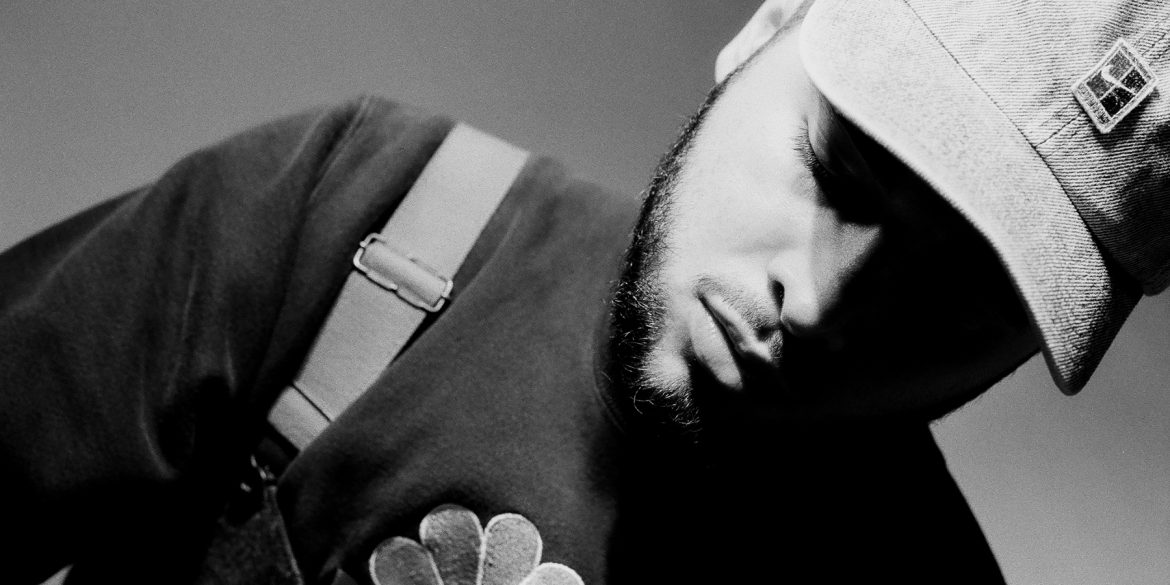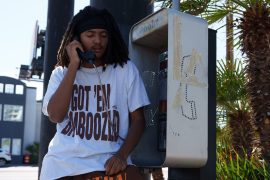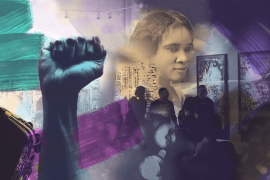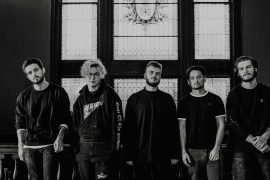If you’re an Indy native, chances are you’ve heard Double A’s music. Chances are even higher that you’ve shopped at his astoundingly successful store Naptown Thrift. To put it simply, Double A aka Aaron Marshall has his hands on the pulse of the city, and his grip is tightening.
Other than casually dropping two of the city’s best songs last year, it was a relatively quiet 2020 for the business owner and rapper, who choose instead to focus his time and energy on his store located in South Broad Ripple. To take his silence as a lack of working would be a mistake, as it looks like in 2021 we’ll see more new music from the Butler University graduate. I had the pleasure of chopping it up with Aaron about his rapid rise in the local music scene, reputation for killing guest verses and his evolution through his first three albums.
Without further ado, please welcome Double A to Art Identified.
JM: Dope to have you in man. I assume you’ve been rapping for a long time because your pen game is insane. When did you start taking music seriously?
Double A: Freshman year of college was when I actually started to put thought into cohesive projects as far as technical writing and skill. Like most people starting out I was recording myself on Garage Band just whenever I could. Then my freshman year came around and I decided to put a project together. Looking back on it now that project was terrible. I didn’t really make a splash in the local scene until my junior year in college when I put out ‘Delawhere’. People sort of took notice of me then, because I was showcasing my best writing skills on that project. So I’ve been rapping for a while, but taking it seriously for the past four years.
JM: I feel like you came out of nowhere in the rap scene here in Indy and quickly climbed the ranks of top tier talent. When recording ‘Delawhere’ did you have confidence in yourself that the project was going to be received well?
DA: For sure. I had a lot of confidence in that record. I hadn’t really performed many shows before that project. I had done the classic Emerson opener show and a show in Fountain Square with Jeremiah Stokes which was what I would consider my breakout show as far as the local scene is concerned. I dropped ‘Delawhere’ a couple months later. I had confidence in my skill level after practicing for years and years and just soaking stuff in before making myself more known. I wanted to gain my bearings and understand what people were currently doing here and then take that and compare it to what I was able to bring to the table. I knew ‘Delawhere’ was on level with my contemporaries.
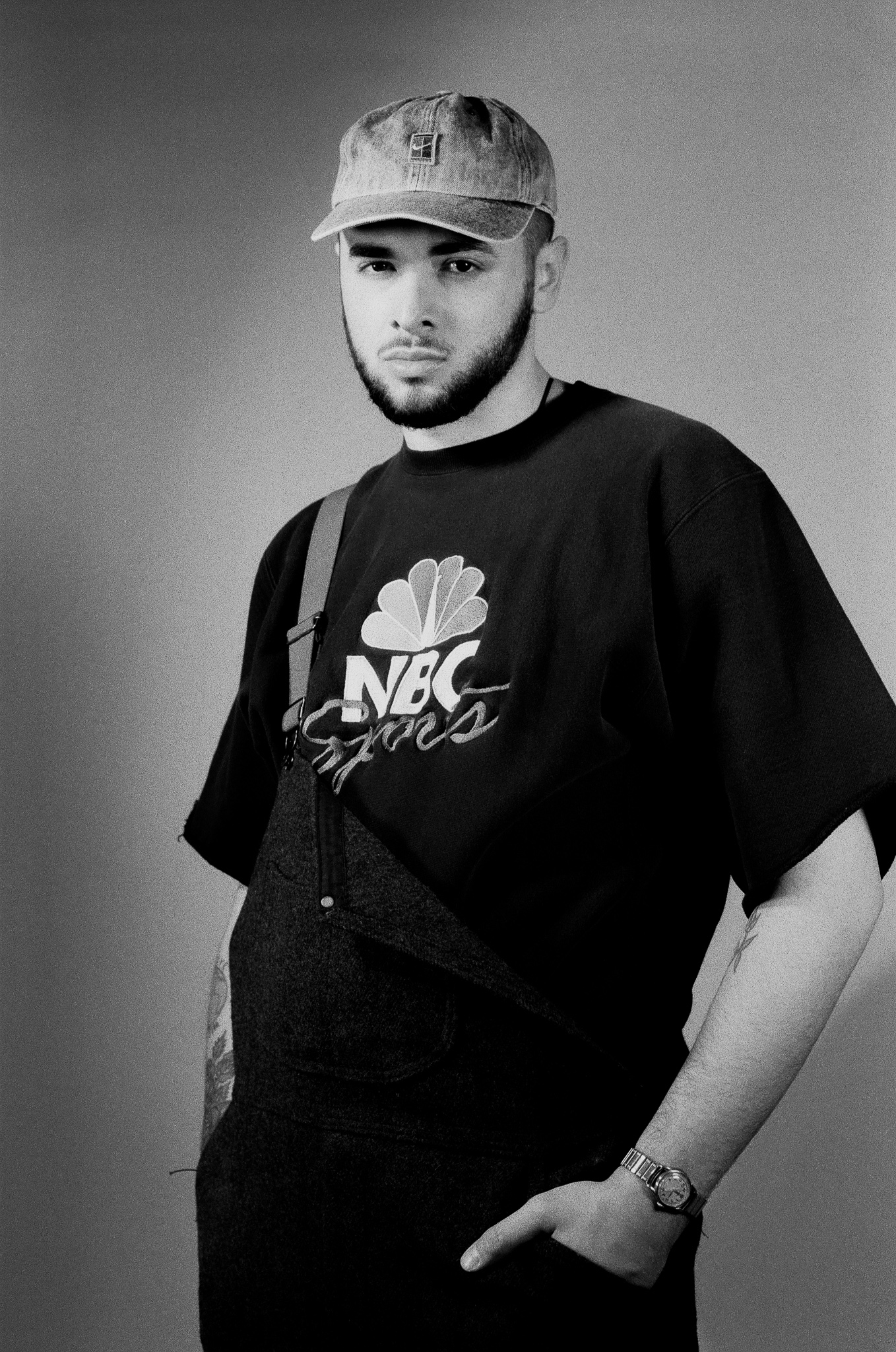
JM: The project has such a developed sound for it being your first serious project. There was a veteran sound to the project that I think took a lot of people by surprise.
DA: Yeah it was crazy. While it wasn’t my first project ever made, it was the first one that was on streaming services. Admittedly the projects before ‘Delawhere’ were not great, but I will say they definitely helped me progress as an artist to the point when I released a real cohesive project it sounded more polished. It was the first album I made where I really collaborated with people. I gained recognition from other artists in the city with that project which opened the door to more collaborations.
JM: I really love how you attack guest verses. And you’ve been doing a lot of them recently. It seems like most projects in the city last year had a Double A feature. Your flow on each one is always vastly different from the last. They all end with a feeling of you dropping the mic, knowing you killed it. Are you conscious of this?
DA: It’s funny you mention that. I think it’s just how I naturally end guests verses. I feel like as a rapper or just a person with a brand in general, you have to have that confidence and aggression to where if people ask you to collaborate with you that’s awesome, but you have to let them know you’re trying to wash them, because at the end of the day everyone is going to hear it and make their judgements. People will say it’s cool that they all made a song together, but I want people to talk about my verse specifically.
JM: Bar for bar, I’m not sure there is a better technical rapper than you in the city. By technical I mean being able to skillfully incorporate flow, wordplay, metaphors and energy in every verse. Besides yourself, who do you think are the best technical rappers in the city?
DA: When it comes to rapping, I see it less as a competition, because it is more so a hobby for me. Something I do for fun. At the end of the day I guess there is competition, but I look at more like who I am inspired by and who I have friendly competition with to where if I get on a song with them I know I am going to have to really bring it. I would say Sirius Blvck is one of those artists. Feeray, Foxd’legend and Jeremiah Stokes. These guys are known for their wordplay, flow and all of the technicalities you just mentioned AND are also able to make it a good song. Not everyone who is good at rapping can make good songs. So I gravitate to the guys that do.
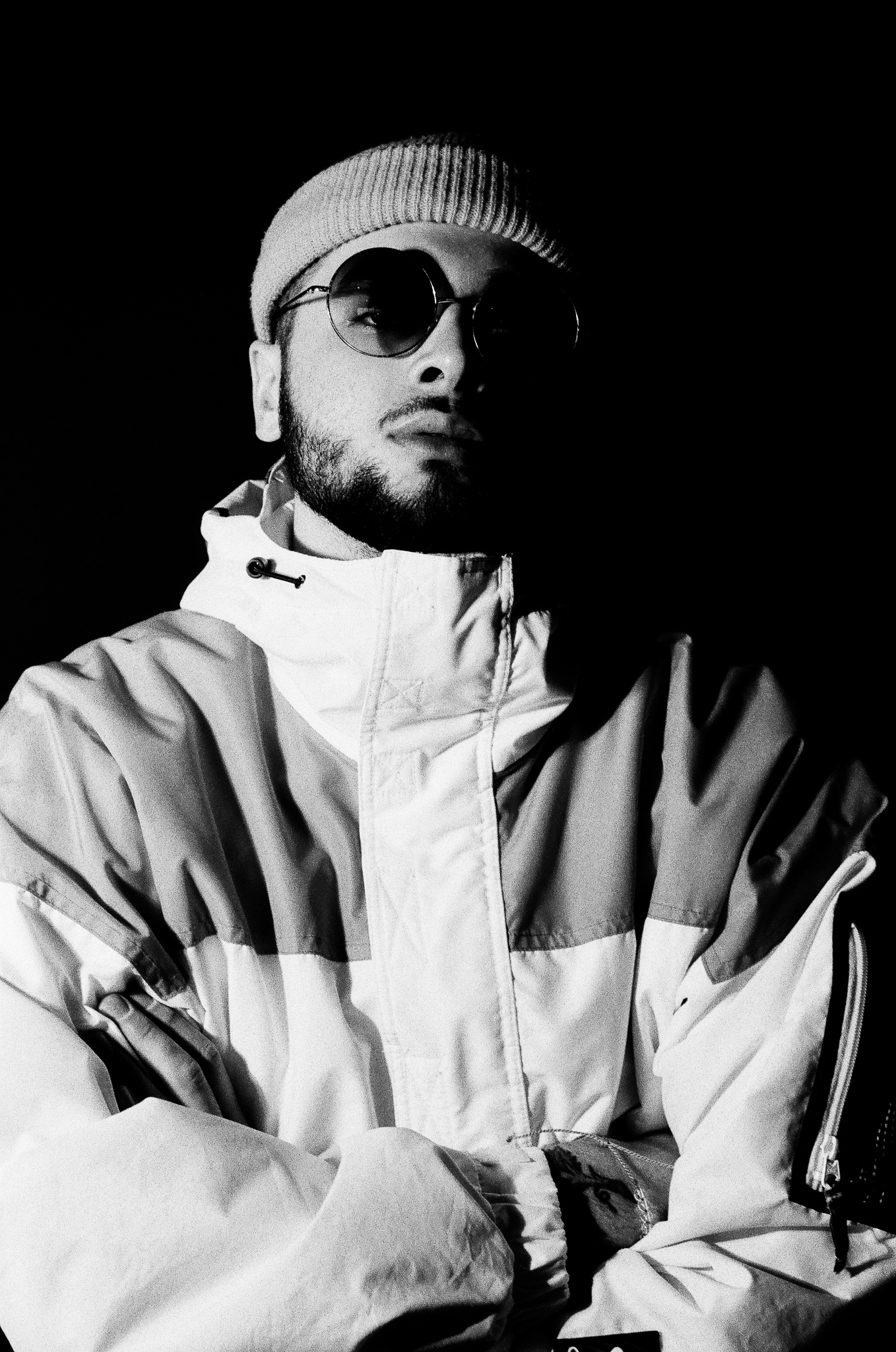

JM: I feel like your rapping skills would translate really well to battle rapping. Have you ever considered giving it a try?
DA: It has always sounded like a fun possibility to me, but at the end of the day I think there would be a certain corniness to me just jumping into that. To me it would feel inauthentic. Plus there is the whole win or lose aspect to it. I think I could win a lot of battles if I took it seriously enough. Looking up some dudes background and history to make some savage diss bar and memorize it seems like a lot of time and effort. I would rather put that energy into my business or my own records.
JM: That makes sense because I feel like your music has a generally positive vibe to it which wouldn’t necessarily translate well to tearing another person down bar by bar. Has your music always had this positive fun vibe to it or did you have to find that sound?
DA: I would say when I first started my songs did have a more somber sound to them prior to ‘Delawhere’. You find your sound and your lane along the way as far as what works for your brand. For me it happened to be positivity and confidence. I think it is always valuable for artists to be vulnerable in their work because it shows the people who listen to you a side they can connect with. At the same time I value confidence and giving people positivity and I try to use that as my brand so people want to listen to my music to feel better if they’ve had a rough day or are going through some stuff.
JM: I want to touch on your evolution throughout your projects. ‘DeLAwhere’ seemed like you and your homies just having fun and rapping. ‘Peaked’ had this vibe that you wanted to show you can make great songs while really rapping your ass off. And ‘How Soon They Forget’ felt like you were rapping with a chip on your shoulder and you wanted to show people just how good you were. What do you think about that?
DA: Absolutely, that’s how I feel ‘How Soon They Forget’ felt. Like you said with my other two projects, ‘Delawhere’ was my realization that I can make a wave locally. ‘Peaked’ released during probably the strongest year I’ve had with opening ‘Naptown Thrift’, graduating college and winning Indy’s Best Rapper. The whole year was very monumental for me. While recording ‘How Soon They Forget’ I wanted to come with this energy of demanding my flowers. I titled it that, because I had been running the business through an actual store front for a year, so people more so associated me with the shop than my rapping which is fine, because the shop is my first priority. I do think it is good to remind people that you haven’t lost it and that was my main goal with ‘HSTF’.
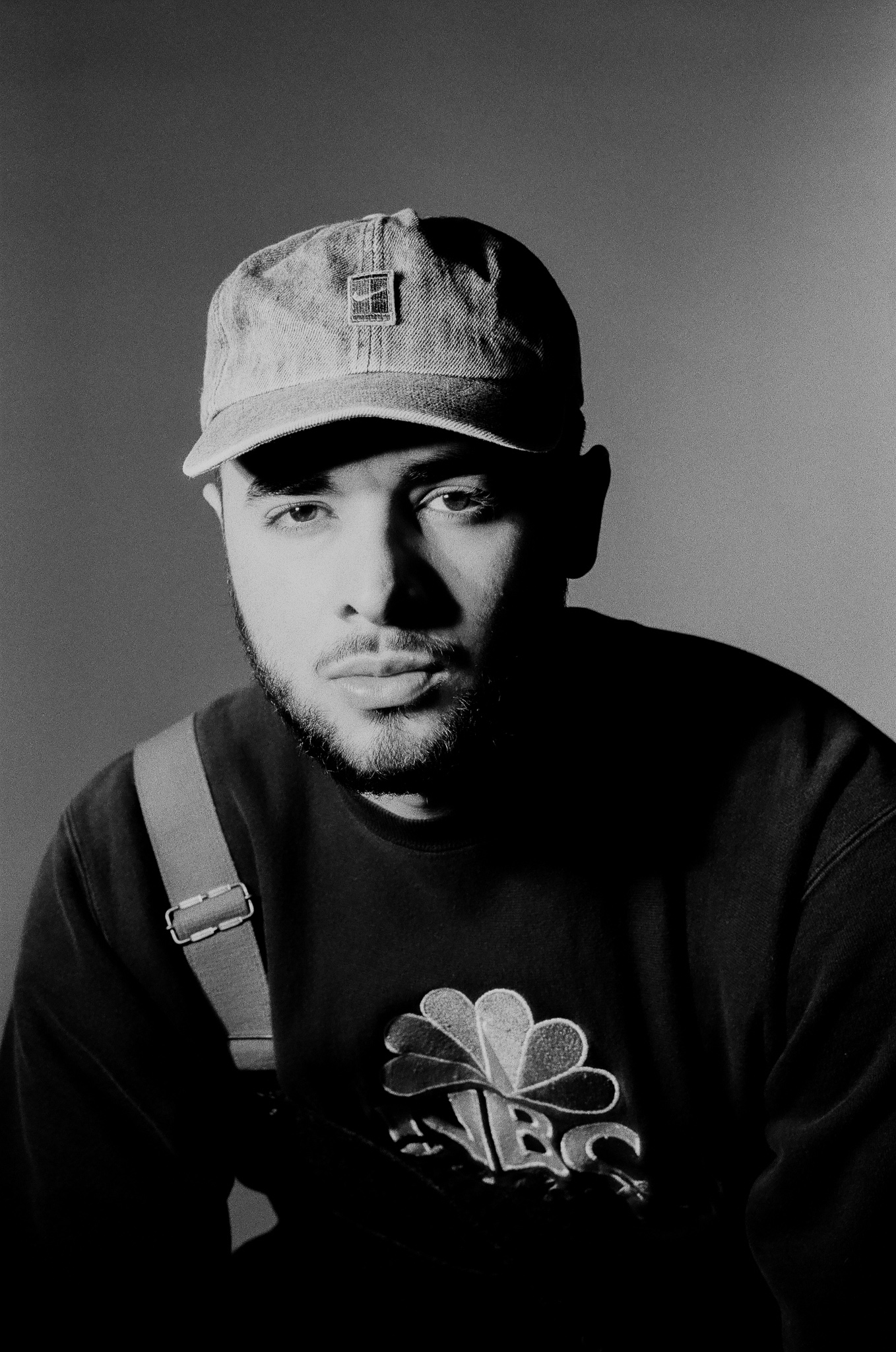
JM: Naptown Thrift has become a city staple. Something that you started out of a storage unit has really morphed into a city landmark in my eyes. The store sets itself apart from other vintage sellers because you’ve cultivated an experience when going there. It’s almost an attraction.
DA: I think that kind of happened naturally. When we were operating through ‘The Unit’ we really tried to cultivate a personal shopping experience. We quite literally were rolling out the store for you personally if you had booked a time to shop. When we opened the shop we had all this memorabilia, games, action figures and little things that just takes you back to the nineties and just a generally chill, welcoming environment. We have people who stop by just to hang out and chop it up and we love that. To me my favorite part is when people come into the shop and see the way we’ve decorated and they talk about how it takes them back to their childhood when things were a little more carefree. It’s a nostalgia trip for a lot of people and that is such a dope feeling to give that to people.
JM: Your latest single ‘Park’ has quite a bit of a different sound. It has a very boom-bap sound to it that is reminiscent of the golden years of Hip-Hop. Can we expect more raps like this in the future?
DA: Definitely. Shoutout to the homie Ricky, he was the man who produced the track. That sound is probably what I am more into at my roots. Since I have taken rap as more of a hobby it has really let me make the music that I really want to make. There is a big section of rap fans that are really into that sound and will be able to catch things I’m saying that the average listener probably won’t. I was able to open up a little more on that song, because I think that sound lends itself to that vibe and I had a real dope time making it. You can definitely expect more songs in similar vein as ‘Park’.


